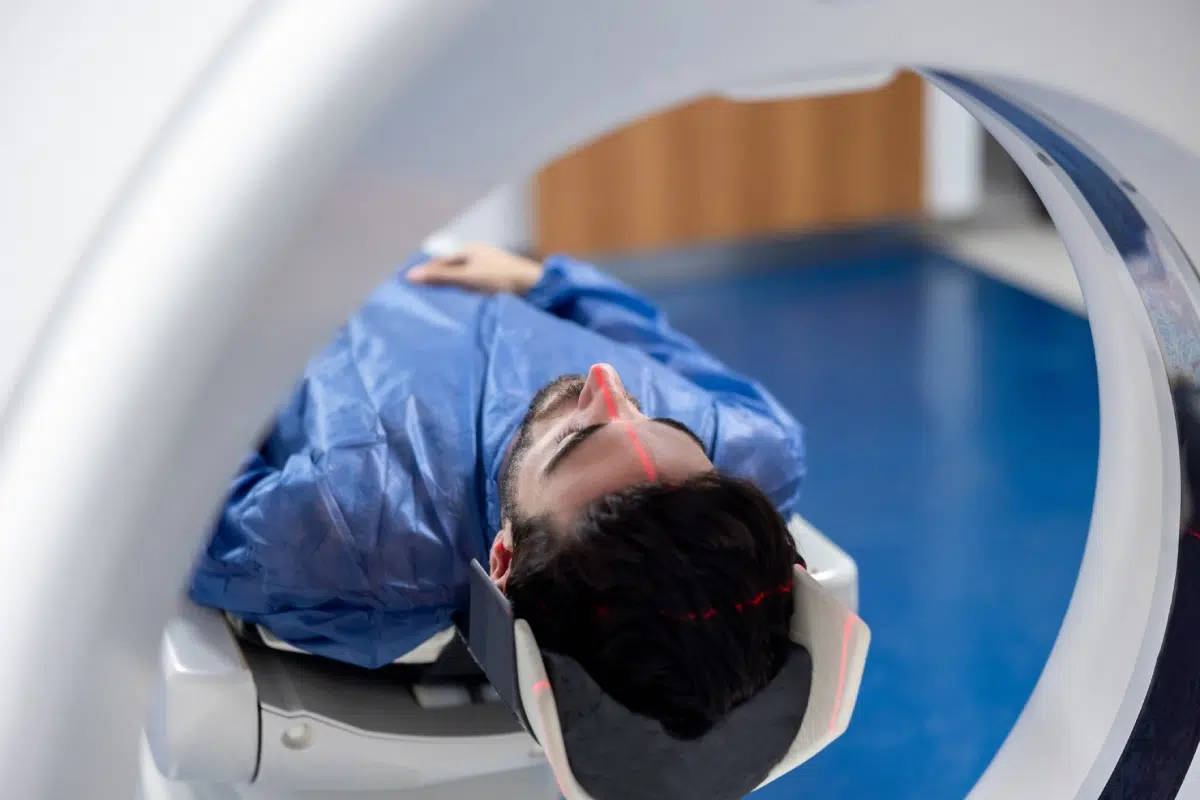Securing the compensation you deserve in a personal injury case is hard enough when you have visible injuries. When you have a brain injury — even a very serious one — you might appear normal on the outside. However, internally, you may be suffering from memory loss, unclear vision, debilitating headaches, and cognitive issues so severe you’re no longer able to work.
If you’re working with a personal injury attorney in San Francisco, your lawyer might already be strategizing how to prove brain injury in personal injury cases. Here’s a look at some of the ways your attorney might go about proving your injury and its debilitating effects on you.
Understanding Traumatic Brain Injury (TBI)
Lawyers for personal injury claims have a tough job. They need enough legal knowledge to effectively represent their clients in court, but they also need enough medical knowledge to understand the severity of a client’s injury. Once they understand the injury, they must be able to describe it in a way that insurance representatives, judges, juries, and anyone else without a medical background can grasp.
You can’t determine how to prove a brain injury in court without first understanding a bit about traumatic brain injuries (TBIs). A TBI happens when your head is struck by an external force. That force can then cause an injury in your brain. TBIs can be difficult to diagnose, partly because symptoms can vary so widely. These are some of the symptoms you might suffer with a TBI:
- A decline in cognitive abilities
- Problems with speech
- Problems with vision
- Constant headaches
- Personality changes
- Confusion
- Memory loss
- Uncharacteristic mood swings
Adding to the potential confusion is the fact that while some TBIs eventually heal, others cause lifelong impairment. If you’re grappling with that impairment, you need an experienced personal injury attorney to try to secure compensation for you. Of course, gaining compensation hinges on your ability to prove your TBI.
Proving Brain Injuries in Personal Injury Cases in San Francisco
If you’re looking for a personal injury attorney, San Francisco, CA, is filled with lawyers who could potentially represent you. The process of proving a brain injury starts even before a lawsuit has been filed — it starts when you choose an attorney.
Once you’ve found personal injury lawyers in San Francisco to work with you, your legal team will likely start strategizing. While proving the existence of your traumatic brain injury is a key element of your case, it isn’t the only thing your legal team needs to prove. They’ll need to work the proof of your injury into the greater framework of proving negligence. In order to secure a respectable settlement for you, your lawyer will need to prove the following:
The Defendant Had a Duty of Care to You
In many cases, this simply means the defendant was obligated to act in a way that doesn’t put other people’s safety at risk. For example, if the defendant was driving, they had a duty of care to obey traffic laws to avoid causing accidents.
The Defendant Breached That Duty
This is a key part of proving negligence. There are many ways to breach a duty of care, but suppose that in your case, the defendant breached that duty by texting while driving.
The Breach of Duty Directly Caused Your Injury
Depending on the exact circumstances of the case, this can be hard to prove. For instance, if the defendant’s texting resulted in a car accident, most people might assume it’s clear the driver’s actions directly caused your injury. However, if you did not seek medical help right away, the defense might claim that you suffered the injury after you left the scene of the accident.
You Have Suffered Losses From That Injury
This is where lawyers illustrate how your injury has impacted your life. “Losses” can apply to financial losses, mental and emotional trauma, and physical pain.
How to Legally Prove a Traumatic Brain Injury in San Francisco (TBI)
Wondering how to prove a traumatic brain injury? Having the right evidence is part of it, but a skilled personal injury lawyer in San Francisco doesn’t just dump evidence in front of the court and leave them to draw their own conclusions. Instead, a competent lawyer will build a narrative around your injury.
Proving the Injury Happened
Even if your injury came from a violent blow, TBIs aren’t like broken bones — they won’t always show up on brain scans. If your team obtains statements from doctors (either your own doctors or those who focus on TBI), it might be helpful for the doctor to explain this fact to the court.
You may not always be able to see your brain damage in black and white, but if you can bring in witnesses who saw the event that caused your injury, witness testimony may make your case more believable.
Proving Its Impact on Your Life
Sometimes, a traumatic brain injury is likely to impact the victim’s quality of life for the foreseeable future. Your legal team may be able to calculate lost wages over your lifetime and provide the court with an estimate of the cost of ongoing medical treatment, speech therapy, or any other treatments. Witness statements from people who knew you before and after your accident may be helpful here.
What Evidence Is Used to Prove TBI in a Personal Injury Lawsuit in San Francisco?
When it comes to how to prove traumatic brain injury, knowing what evidence to have is essential. And often, there’s no such thing as too much evidence. Your injury attorney in San Francisco may be able to use the following types of evidence to secure a positive outcome in your traumatic brain injury case.
- Testimony from medical experts explaining how TBIs work
- Testimony from your own doctors about the care you’ve received
- Statements from witnesses at the scene of the original accident/incident
- Copies of police/incident reports
- Copies of your medical records
- Statements from psychotherapists about the injury’s impact on you
- Results of intracranial pressure monitoring (to prove there was swelling in your brain)
- Medical images like CT scans and MRIs
- Testimony from your former coworkers if your injury will prevent you from working
If your injury is severe enough, your doctors may have told you to avoid too much critical thought. If at all possible, ask a family member to keep track of medical records, bills, and other documentation. You can give these to your attorney to strengthen your case.
Working With a San Francisco Personal Injury Lawyer
Many people wonder if they can simply negotiate a settlement with the at-fault party’s insurance company. While you can do that if you wish, working with a personal injury law firm in San Francisco maximizes your chances of a fair settlement. Let us handle the logistics of your case — the more rest you can give your brain, the more likely it is to heal.
Recoverable Damages in Brain Injury Lawsuits
As you already know if you have suffered a traumatic brain injury, a TBI can have a long-lasting impact on a person’s physical and mental health. Because severe TBIs have such a significant impact on all areas of a victim’s life, you may be able to collect a wide range of economic and non-economic damages:
- Medical expenses
- Cost of any specialized medical equipment
- Cost of occupational therapy, speech therapy, and similar therapies
- Cost of transportation if you cannot drive because of the injury
- Cost of lifetime care if needed
- Mental anguish
- Loss of quality of life
- Short-term lost wages
- Loss of long-term earning potential
- Pain and suffering
Keep in mind that while the above can potentially be collected in a lawsuit for personal injury, you need a skilled attorney with experience in traumatic brain injury cases to advocate for you. At Delfino Green & Green, we’re proud to say we have recovered more than $100 million for our clients — and we may be able to help you recover the compensation you deserve, too.



